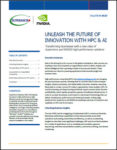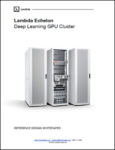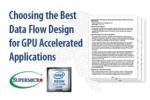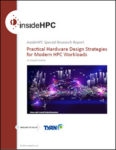This whitepaper reviews how cutting-edge solutions from Supermicro and NVIDIA are enabling customers to transform and capitalize on HPC and AI innovation. Data is the driving force for success in the global marketplace. Data volumes are erupting in size and complexity as organizations work to collect, analyze, and derive intelligence from a growing number of sources and devices. These workloads are critical to powering applications that translate insight into business value.
Deep Learning GPU Cluster
In this whitepaper, our friends over at Lambda walk you through the Lambda Echelon multi-node cluster reference design: a node design, a rack design, and an entire cluster level architecture. This document is for technical decision-makers and engineers. You’ll learn about the Echelon’s compute, storage, networking, power distribution, and thermal design. This is not a cluster administration handbook, this is a high level technical overview of one possible system architecture.
Practical Hardware Design Strategies for Modern HPC Workloads
Many new technologies used in High Performance Computing (HPC) have allowed new application areas to become possible. Advances like multi-core, GPU, NVMe, and others have created application verticals that include accelerator assisted HPC, GPU based Deep Learning, Fast storage and parallel file systems, and Big Data Analytics systems. In this special insideHPC technology guide sponsored by our friends over at Tyan, we look at practical hardware design strategies for modern HPC workloads.
Call for Papers: EuroPar 2017 in Santiago de Compostela
The Euro-Par 2017 conference has issued its Call for Papers. The conference takes place Aug. 28 – Sept. 1, 2017 in Santiago de Compostela, Spain. Euro-Par is the prime European conference covering all aspects of parallel and distributed processing, ranging from theory to practice, from small to the largest parallel and distributed systems and infrastructures, from […]







